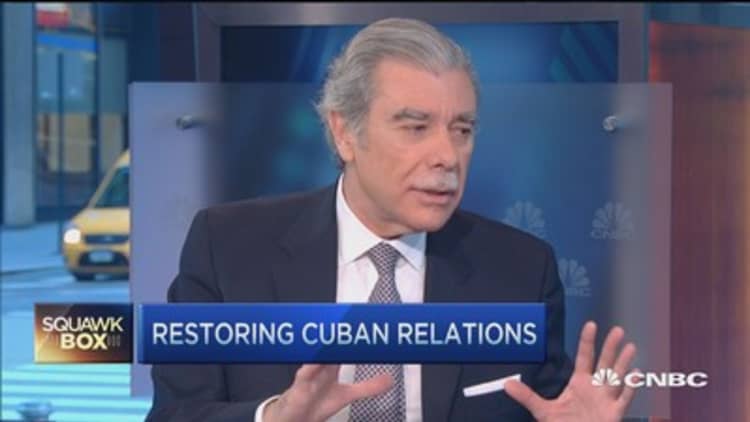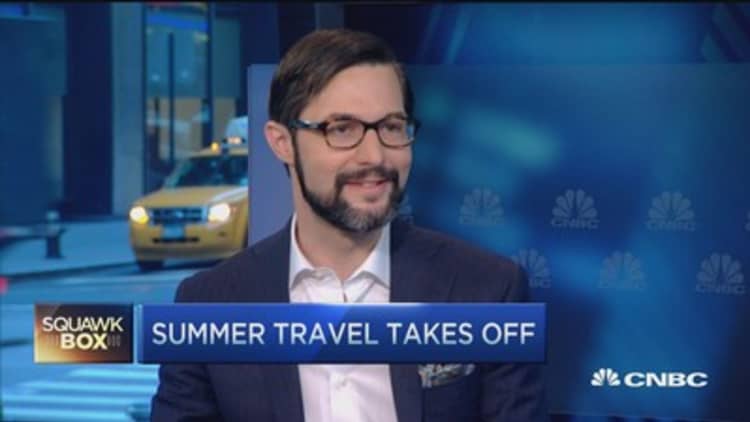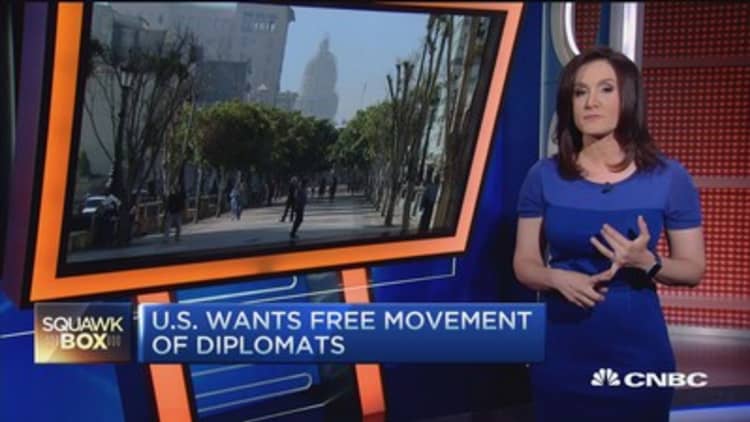


Diplomatic talks between the U.S. and Cuba have "continued to advance," but there is no decision yet on opening embassies in each other's countries, according to Cuba's lead negotiator.
The heads of U.S. and Cuba delegations to re-establish diplomatic relations delivered public addresses Friday from the Foreign Press Center in Washington.
"Both delegations agreed to continue our exchanges on issues related to the functioning of diplomatic missions, so we will continue those conversations over the next few weeks," Josefina Vidal, director of U.S. affairs at the Cuban Foreign Ministry, said in response to a question about impending embassies.
Read MoreEx-Bush aide: Cuba could be another Singapore if…
In her prepared remarks, Vidal said the Cuban mission is ready to discuss issues such as lifting the embargo once diplomatic relations are formally reestablished.
The U.S., meanwhile admitted the challenges of achieving that feat, but characterized the talks as "highly productive."
"This has not been an easy task given our complicated history," U.S. Assistant Secretary of State Roberta Jacobson said.
Jacobson added that she could not specify what parts of opening an embassy remain sticking points between the two parties.
Talks between the two countries went into a second day on Friday as the sides try to reach agreement on reopening embassies shut for more than half a century, the crucial next step in their historic detente.
The opening of embassies in Washington and Havana is part of an agreement struck between U.S. President Barack Obama and Cuban President Raul Castro in December to reestablish diplomatic ties severed by the United States in 1961 soon after Cuba's revolution.
Once diplomatic relations are restored, the long-time adversaries will work on the more complicated task of normalizing overall relations.
The meetings were led by Jacobson and Vidal.
Washington wants assurances that its diplomats will have more freedom of movement on the Communist-ruled island, while Castro this week reiterated Cuban concerns that dissidents are receiving "illegal" training at the U.S. Interests Section in Havana.
The two countries have interests sections rather than embassies in each other's capitals. Currently, U.S. diplomats cannot leave Havana without permission, while Cuban diplomats cannot travel outside of Washington and New York.
Read MoreSmall Florida bank opens Cuban gov't account
Washington also wants assurances that Cubans would be able to visit the U.S. Embassy without being harassed by police and that there would be in an increase in U.S. embassy personnel.
This week's talks are the first since Obama announced on April 14 that he had decided to remove Cuba from a U.S. list of state sponsors of terrorism, which Havana had called a necessary step for further progress.
The Cubans have signaled that any formal announcement on the re-opening of embassies will likely have to wait until after the 45-day Congressional review period for removing Cuba from the terrorism list. Cuba considers May 29 as the date when the review period ends.
—Reuters contributed to this report.


